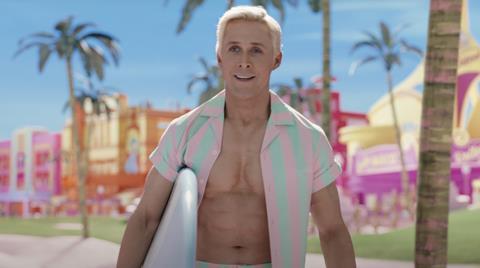Writer Hope Bonarcher shares her thoughts on the way men and Ken are portrayed in the latest Barbie release.

Growing up, I was the quintessential Barbie girl; the girliest of girls, and Barbie was how I expressed it. Despite my propensity for all things feminine, I find myself, save for my daughter, in a household surrounded by males, so what shapes and identifies the male psyche in the present day is important to me. Yet, when I ponder how men are portrayed in the Barbie movie the main word that comes to mind is OBSOLETE.
Men in the movie are portrayed as buffoons without any positive character qualities. Men and women were made in God’s image, both sexes are inherently valuable and good. Eve literally comes from Adam’s rib, she’s companion, co-laborer and cooperative. In Barbieland, Ken’s reason for existence is to be codependent with Barbie, but she didn’t get the memo, maybe because his only redeeming quality is his abs.
There’s not one suggestion being male is valuable or even necessary.
There’s not only vain-glorious Ken, there’s Will Ferrell’s idiotic babbling head of Mattel whose pure purpose is to get Barbie in her box (pun definitely intended by the screenwriters). Real world dad is singularly dedicated to learning Spanish, in need of correction by his disinterested Latina wife. There’s the Alan doll, perpetually uncomfortable, literally not wanting to be there, and even a trans doctor Barbie who has surrendered his identity as a man all together. There’s not one suggestion being male is valuable or even necessary.
Read more on films
As Scream VI hits cinemas - here’s what I think about Christians watching horror films
Are you there, God? It’s me, and I’m like Margaret
Mrs. Harris Goes to Paris is a sweet film with some very Christian values
We understand scripturally God felt it wasn’t good for man to be alone; his reason for creating the first woman was distinctly for this purpose. There’s nothing unnatural about young men seeking to embark on lives of family. Without this ideal, the human race ceases to exist.
In Barbieland, however, Ken learns he needs only look inwardly for the meaning and purpose he seeks, companionship and chivalry are the enemy. He shouldn’t have wanted to follow Barbie along on her adventure into the real world. He doesn’t help rescue her when she is kidnapped by the evil Mattel executives. He doesn’t even stay to help her but returns selfishly to Barbieland to instill the Kendom using the patriarchal ideals he’s learned in the world. The film depicts him as selfish, looking out only for himself, when in the end, that’s exactly how Barbie shepherds him. It seems he should rely on himself only as much as it benefits Barbie. The self obsessive navel gazing her life is consumed with by the real world infects Ken as much as herself. They’re “better off” unique, self sufficient entities than pillars of relationship.
Women are ultimately unsatisfied objectifiers, everything feminists claim to hate about men.
Barbie creator, Ruth Handler, named Barbie and Ken after her children. In the film, men and women seem better suited as brother and sister. They’re rivals, not a team. There’s no possibility of fruitfulness produced by their union. Take Midge, the pregnant Barbie, we’re reminded throughout the film was discontinued due to uselessness. The main character of mother in the movie is depressed, dark and unfulfilled, more concerned with playing with dolls than her marriage.
Sadly, there’s no happy ending. I left unsettled; what should have happened, didn’t. The instinct for relational unity lies within us deeply as women and includes men. It’s a desire my sons and husband need to value too. In the movie, Barbie leaves us, beaming at the front desk of the gynecologist. Being in control of her reproductive health brings ultimate meaning to real world Barbie. Men are merely sexual objects (hence the abs) from which any good fruit of relationship requires at least the possibility of termination. Women are ultimately unsatisfied objectifiers, everything feminists claim to hate about men. The messaging to men in the Barbie movie is women can do everything better, even being them.
The Woman Alive podcast is out now! Available on Premier.plus, Spotify, Apple Podcasts or wherever you get your podcasts. Please do rate and review the podcast and share the episodes you’ve enjoyed, with the women – or indeed men! – in your life.





































3 Readers' comments